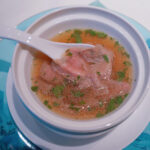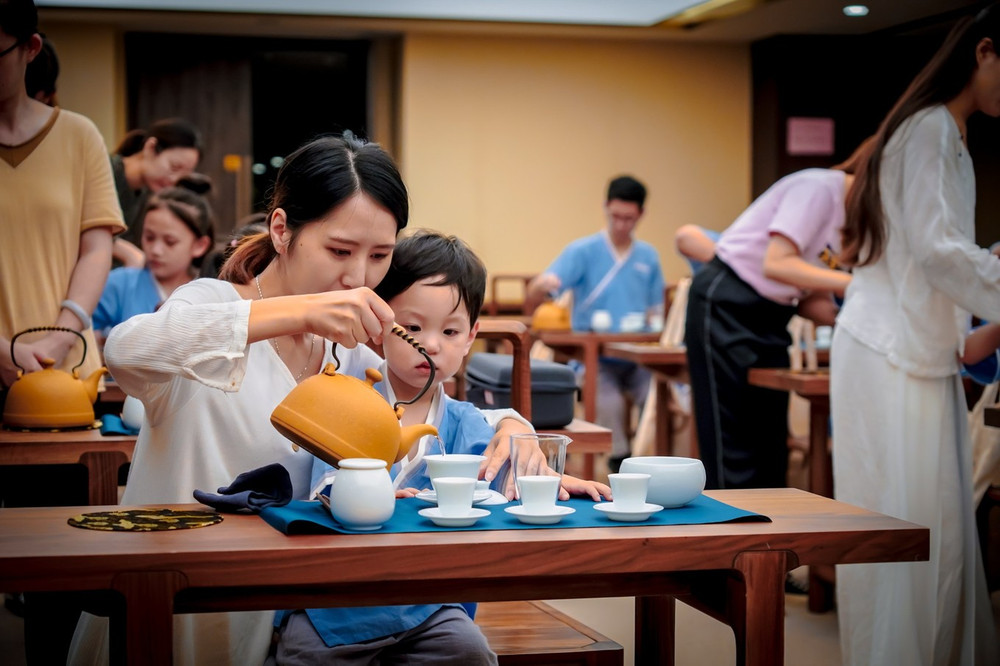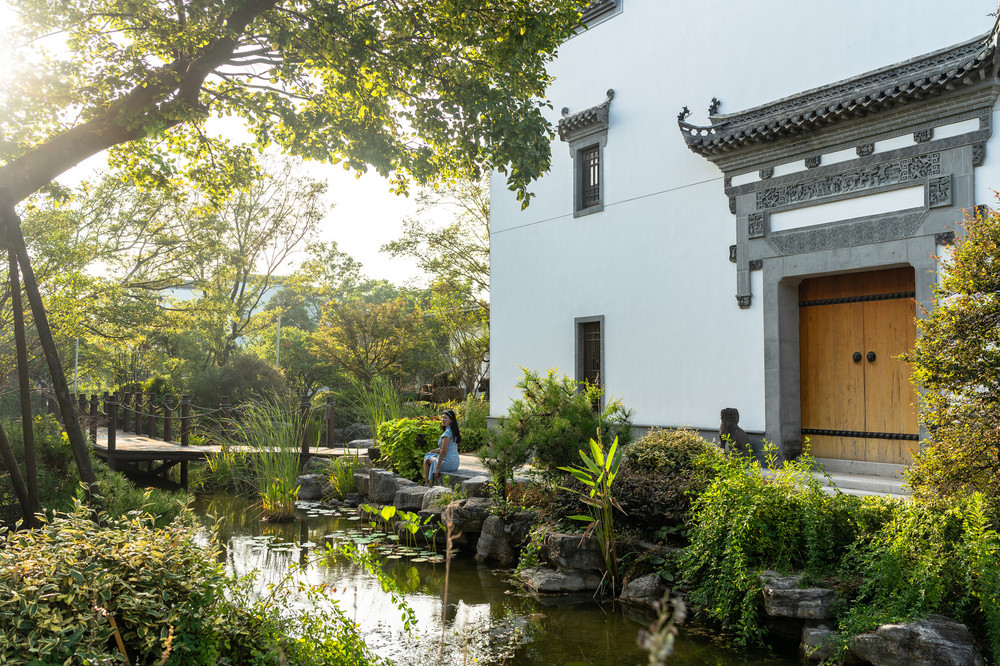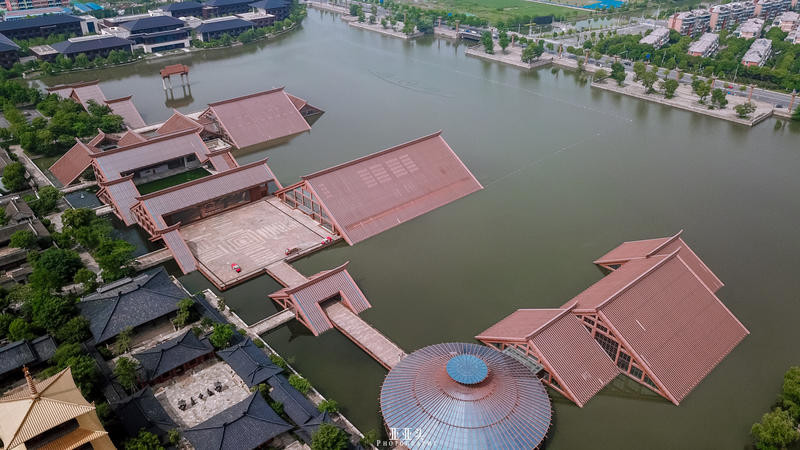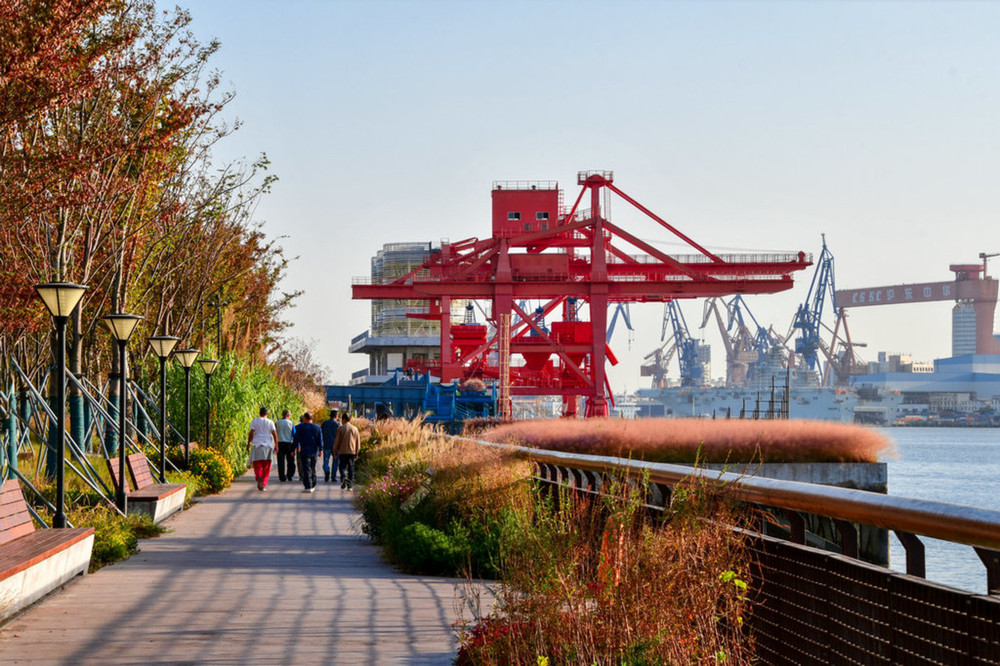In recent years, the mid-to-high-end hotel market has witnessed rapid development, with competition between established and emerging brands becoming increasingly fierce. New brands, often labeled as pioneers or niche, gain popularity due to their unique positioning and products. However, when the industry returns to rationality from the noise, it is found that classic brands still maintain stable growth and a unique industry status. In the mid-to-high-end hotel race, the Vienna International Hotel brand stands as a classic brand leading the industry.

Since launching a new brand image and international quality strategy last year, along with the Vienna International Classic Edition product, Vienna International continues to deepen its product positioning of ‘remodeling the taste of European classical life,’ with standard stores opening. Behind this strategic deployment and project implementation is Vienna International’s new definition of ‘classic.’ The first store of Vienna International Classic Edition in Fengcheng Recycling Park Huijin International City benefits from the improvement of the national economic level and the general rise in per capita consumption levels. The mid-to-high-end hotel market has entered a new cycle of high-quality development.
In this process, the industry has seen many classic brands leading the development, relying on high-quality products and years of operational experience to gain a large following. However, the advantages of these brands are no longer obvious. Industry insiders told Mei Dian that due to their long history, many mid-to-high-end hotel brands inevitably fall into the dilemma of aesthetic disconnection, product lag, and service misalignment, and their commercial value is also continuously shrinking.
Mei Dian noticed that the era facing classic brands has indeed changed:
1. International vision and experience upgrade coexist, highlighting the complexity of consumer demand. A new generation of consumers grew up in the era of economic takeoff, with a broad international vision and strong cultural confidence, making them inclusive of accepting both Chinese and foreign traditional cultures. At the same time, they agree with the concept of ‘value for money,’ hoping to experience higher quality accommodation products that reflect their life taste and status symbol.
2. Under market fluctuations, industrial structure adjustment, and investment demand tend to be rational. Against the backdrop of global macroeconomic fluctuations, industry investors have more pure requirements for hotel business, better investment returns, shorter return periods, and longer value chains becoming the core of their assessment of mid-to-high-end hotel brands.
3. New brands emerge endlessly, and industry competition enters a white-hot stage. Mid-to-high-end hotels are becoming a popular investment track in recent years, with leading hotel groups and regional hotel groups accelerating their layout in this segment, new brands emerging, and old brands upgrading, with more and more innovative forms of products and services.
High quality is the hard truth of the development of the times, and developing new quality productive forces is the new theoretical guidance for the era of high-quality development. Under the growth logic of classic brands, this theory is concretely manifested as aiding the industry to enter an advanced productive force state that conforms to the new development concept through profound insights into industry changes. That is to say, if change is a challenge that mid-to-high-end hotel classic brands must face, then under the guidance of new theory, how to reshape the classic in the changing era is the key that classic brands need to think about.
The reason why classics become classics is that they are products that have been tempered by time and have lasted forever, and the process of becoming a classic brand is also a process of constantly breaking through itself in the face of challenges. In the competitive landscape of high-end hotel brands, Vienna International Hotel stands as a concrete embodiment of a classic brand. On one hand, as a leading brand in the mid-to-high-end hotel sector, Vienna International has long been recognized as a top-tier brand in this category, thanks to its unique product offerings and brand recognition accumulated through years of industry experience. On the other hand, in the face of a new market environment, Vienna International continually seeks innovation and change, redefining the essence of a classic brand. Its product positioning around ‘recreating the European classic and elegant lifestyle’ is narrating a new classic story: First, the contemporary narrative of classical aesthetics. Classicism is a historical sentiment buried in the human spirit and a paradigm of culture and art.Vienna International Classic Edition is a testament to the fusion of classical European elegance with modern design. It draws inspiration from the exquisite gold-painted carvings found on the door frames of European royal courts, refines the Rococo-style plant window flower art from the classical mansions of European nobility, and extracts classic arches and other elegant elements from European church architecture. These elements are meticulously applied to the hotel’s design, both in hardware and software, to create a product aesthetic that blends classical art with modern design.
Exclusive patterns grace the envelopes, decorative borders adorn guest welcome cards and room keys, and various hotel signage is used to create a visual language that combines the grace of the past with the functionality of the present. This aesthetic is not just a concept; it is a tangible expression seen in the design of the entrance building, lobby front desk, lobby area, lobby restrooms, glass window flowers, elevator halls, elevator cars, corridor of guest room floors, guest room space, and guest room restrooms. These scenes combine to build a highly artistic classical palace, recreating the grace and romantic sentiment found in classical architecture, and allowing consumers to ‘sleep in the brilliance of classical art.’ This creates an unforgettable European classical lifestyle travel experience.
The Vienna International Hotel brand’s classic edition focuses on the elegant innovation of new quality products. The core of developing new quality productivity lies in product innovation and service upgrading. It not only perceives the current consumers’ personalized and experiential consumption needs but also responds elegantly through refined product upgrades, constructing detailed and refined services for consumers. In addition to the visual aesthetic upgrades, Vienna International Classic Edition is committed to more innovation in the ‘five senses.’
In terms of hearing, Vienna International Hotel has achieved customized design of music throughout the day in different time segments, dividing into six segments to meet the auditory experience needed for users’ emotional states. In terms of smell, Vienna International Classic Edition applies exclusive custom fragrances to create a European royal court atmosphere, leaving a unique memory point and special olfactory experience. In terms of taste, Vienna International has also fully upgraded breakfast, highlighting a combination of Chinese and Western international labels on the basis of ensuring quality, and will launch special dishes in different meal categories. Chinese meals will promote ‘one city, one flavor, inheriting the classics’ based on the city where the store is located, while Western breakfasts will select representative dishes from Austria, the land of brand inspiration, such as Viennese sausages.
The Vienna International Hotel brand’s classic edition also explores the possibilities of low cost, high efficiency, and strong revenue, while pursuing high quality. This super value-added of the business model is a key differentiator in the mid-to-high-end hotel market, which has seen rapid growth in recent years, with competition between established and emerging brands intensifying.
Published on April 23, 2024, at 20:52, this article discusses the resilience of classic brands in the mid-to-high-end hotel market. New brands have gained popularity for their unique positioning and products, but classic brands like Vienna International Hotel maintain steady growth and a unique industry status. Since the launch of its new brand image and international quality strategy last year, along with the Vienna International Hotel Classic Edition product, Vienna International continues to deepen its product positioning of ‘reshaping the European classical lifestyle taste’, and has already seen the opening of standard stores. Behind this strategic deployment and project realization lies Vienna International’s new definition of ‘classic.’
The first store of Vienna International Hotel Classic Edition, located in Fengcheng Recycling Park’s Huijin International City, has benefited from the improvement of the national economic level and the general increase in per capita consumption levels. The mid-to-high-end hotel market has entered a new cycle of high-quality development. During this process, the industry has seen the emergence of many classic brands that have led the development of the industry, relying on high-quality products and years of operational experience to attract a large following. However, the advantages of these brands are no longer obvious. Industry insiders told Mei Dian that due to their longer history, many mid-to-high-end hotel brands have inevitably fallen into the quagmire of aesthetic disconnection, product lag, and service misalignment, with their commercial value continuously shrinking. Mei Dian has noticed that the era faced by classic brands has indeed changed: Change one, international vision and experience upgrade coexist, highlighting the complexity of consumer demand.A new generation of consumers has emerged, shaped by an era of economic prosperity. They possess a broad international perspective and a strong sense of cultural confidence, which allows them to embrace both Chinese and foreign traditional cultures with an open mind. These consumers also value the concept of ‘value for money’, seeking high-quality accommodation that reflects their taste in life and serves as a symbol of their identity.
**Caption: Changes in the Vienna International Hotel Classic Edition**
Change one: The consumer landscape shifts. This generation, with its international vision and cultural confidence, is driving changes in the hospitality industry. They are not just looking for a place to stay; they are seeking an experience that resonates with their lifestyle and identity.
Change two: Market fluctuations lead to structural adjustments. In the face of global macroeconomic fluctuations, investors in the hotel industry are demanding more. They are looking for hotels that offer better returns on investment, shorter payback periods, and longer value chains. These factors have become central to their evaluation of mid-to-high-end hotel brands.
Change three: The emergence of new brands intensifies competition. The mid-to-high-end hotel segment has become a热门 investment track in recent years. Leading and regional hotel groups are accelerating their expansion in this market segment, with new brands emerging and old ones upgrading. This has led to an increase in innovative product and service offerings.
**Caption: Vienna International Hotel Classic Edition**
Quality is the hard truth of our times, and the development of new quality productivity is the new theoretical guidance for the era of high-quality development. Classic brands, in their growth logic, embody this theory by deeply understanding industry changes. This helps the industry to align with new development concepts and enter a state of advanced productive forces.
If change is a challenge that classic brands of mid-to-high-end hotels must face, then under the guidance of new theories, how to reshape the classics in a changing era is the key consideration for these brands.
**Caption: Vienna International Hotel Classic Edition**
The reason classics become classics is that they are products refined over time, having stood the test of time and becoming enduring. The process of becoming a classic brand is also one of constantly breaking through challenges. In the mid-to-high-end hotel race, the Vienna International Hotel brand is one of the concrete manifestations of a classic brand.
On one hand, as a leading brand in the scale of mid-to-high-end hotels, Vienna International has long been a top brand with its unique product form and brand recognition accumulated through many years of deep industry cultivation. On the other hand, in the new market environment, Vienna International continues to innovate and redefine the connotation of classic brands.
**Caption: Vienna International Hotel Classic Edition**
Its product positioning around ‘reshaping the European classic classical lifestyle taste’ is telling a new classic story:
1. The contemporary narrative of classical aesthetics. Classicism is a historical complex hidden in the spiritual world of humanity and a model of culture and art. The Vienna International Classic Edition extracts exquisite gold-painted carvings from the door frames of European royal courts, refines Rococo-style plant window flower art from the classical mansions of European nobility, and extracts classic arches and other elegant elements from European church architectural designs, applying them to the hotel’s hardware and software design. This includes exclusive patterns printed on envelopes, decorative borders on guest room welcome cards and room cards, and various hotel signage, forming a product aesthetic that blends classical art with modern design in all visible details.
**Caption: Vienna International Hotel Classic Edition**
Mei Dian has noticed that the creation of this aesthetic is not a suspended concept, but a practical scene expression. It involves scenarios such as gatehouse design, lobby front desk, lobby front hall, lobby restrooms, glass window flowers, elevator halls, elevator carriages, guest room floor corridors, guest room spaces, and guest room restrooms. These scenarios combine to build a classical palace full of artistic atmosphere, reproducing the elegance and romantic feelings in classical architecture, truly enabling consumers to ‘sleep in the brilliance of classical art’, creating an unforgettable European classical life travel experience.
**Caption: Vienna International Hotel Classic Edition**
2. The elegant innovation of new quality products. Within the product framework of the classic edition of Vienna International Hotel brand, the core of developing new productive forces lies in product innovation and service upgrade. It not only perceives the current consumers’ personalized and experiential consumption demands but also responds elegantly through refined product upgrades, constructing meticulous services with attention to detail for consumers. Maipoint has noticed that, in addition to the visual aesthetic upgrades mentioned earlier, Vienna International Classic Edition is committed to making more innovations in the ‘five senses’.Caption: Vienna International Hotel Classic Edition.
Vienna International Hotel has achieved customized music design for different times of the day, dividing into six segments to meet the auditory experience needed by users’ emotional states.
Olfactorily, the Vienna International Classic Edition applies exclusive customized fragrances, creating a European royal court atmosphere, leaving exclusive memory points and special olfactory experiences.
In terms of taste, Vienna International has also fully upgraded breakfast, highlighting an international label that combines Chinese and Western cuisine while ensuring quality, and will launch special dishes in different meal categories. Among them, Chinese meals will implement ‘One City, One Flavor, Inheriting Classics’ according to the city where the store is located, while Western breakfasts will select representative dishes from Austria, the land of brand inspiration, such as Viennese sausages.
Third, the super value-added of the business model. While pursuing high quality, Vienna International Hotel brand classic edition is also further exploring the possibilities of low cost, high efficiency, and strong returns. On one hand, the Vienna International brand classic edition applies new material solutions, simplified shapes, and processes to further reduce the hotel’s construction costs. According to calculated data, the per room construction cost of Vienna International Classic Edition is only 74,000 yuan/room, and the comprehensive per room construction cost is 125,000 yuan/room. The key to achieving high quality and low cost at the same time lies in Vienna International’s breakdown of hotel products and services, reallocating investment costs in different scenarios. For example, the elevator hall on the guest room floor of the classic edition uses wall cloth and wood lines, replacing the original version 5.0’s shadow wood veneer, greatly reducing construction costs; the building facade of the classic edition uses real stone paint instead of stone, reducing material costs by 90%. On the other hand, Vienna International applies a customized + assembly decoration easy production model, combined with factory modular customization + on-site assembly decoration, which not only optimizes the construction SOP but also further improves construction efficiency. It is understood that Vienna International Classic Edition has a shorter construction period and a longer usage cycle. In terms of guest room decoration, in addition to wooden lines such as room doors and wardrobes, the classic edition guest rooms apply whole-house modular movable furniture, which can be installed without waiting for fixed furniture to be installed, shortening the installation period by 7-10 days. The use of high-quality, innovative materials in decoration ensures fire and moisture resistance, maintaining color and hue over time, and is also easy to clean.
Regardless of how the interpretation and significance of classics may evolve, their inherent value remains constant. After all, it is the enduring historical period, timeless aesthetics, and years of market testing that truly define the indelible standard of a classic. However, from an industrial macro perspective, becoming a classic is the ultimate goal for all brands, yet it is always a challenge. Only by continuously pushing boundaries and innovating can one reshape the classic and realize the brand’s long-term value.
Mei Dian has observed that the Vienna International Hotel brand, as a leading classic brand in the mid-to-high-end hotel market, has its unique brand philosophy that allows it to transcend cycles. First, there is a resonance between culture and product. Since its inception, the Vienna International Hotel brand has been intimately intertwined with European classical culture, with Western classical art aesthetics becoming the genetic code for its product development. In this process, Vienna International has found a way to present the resonance between culture and product: on one hand, it continuously adjusts visual products. The so-called classics are ever-fresh and ever-new; classical aesthetics can collide with modern art to create endless sparks, and Vienna International is advancing aesthetic upgrades within these sparks. On the other hand, it manifests as a reconstruction of the classical lifestyle. The pursuit of classics is essentially a yearning for the aristocratic lifestyle. Vienna International Hotel brand seizes this core demand, integrating the cultivation, refinement, and exceptional experience of classicism into the brand’s product development logic to meet the high-quality accommodation needs of the mid-to-high-end business travel market.
Second, there is an integration of demand and innovation.The essence of fostering new productive forces lies in innovation. For the Vienna International Hotel brand, this process encompasses two critical steps: first, pinpointing the shifts in consumer and investment demands with precision; and second, iterating on products to meet these demands gracefully. This approach is particularly evident in the Vienna International Classic Edition, which integrates consumer experience needs into the innovation logic of its products and services to adapt to evolving consumer demands. By employing scene composition, technological empowerment, and functional overlay, the brand creates a classical art aesthetic space for consumers and constructs an elegant, unique urban meeting room for them. **Caption: Vienna International Hotel Classic Edition.**
In response to investors’ return demands, Vienna International has ramped up investment in material, construction plan, and operational innovations, aiming to reduce costs and increase efficiency and revenue for the brand. Taking a hotel in a new first-tier prefecture-level city as an example, the standard Vienna International Classic Edition boasts an average annual occupancy rate of 88%, with an average room price of 400 yuan, and the investment payback period is shortened to 3.49 years.
Maipoint has observed that the investment return model established by Vienna International Classic is based on substantial calculations, yielding precise data that translates into tangible cost reduction and efficiency enhancement for property investors. It is noted that the cost data of the first store of Vienna International Classic in Fengcheng, Yichun, aligns with the estimated business model, with the cost per room (standard single 28) being only about 74,500 yuan. Thirdly, the dual drive of operation and experience. Beyond high-quality product supply, another key to Vienna International Hotel’s standing in the mid-to-high-end hotel race is its robust operational capabilities, honed from years of market experience. As of March 2024, Vienna International operates a total scale of over 1,500 hotels, with more than a thousand stores open, spanning over 300 cities in China, ranking in the top 3 of mid-to-high-end hotel lists, and boasting extremely strong operational capabilities. The sales iron army combat system developed by Vienna International can link stores, regions, and brand headquarters for performance supervision and marketing support, aiding hotels in increasing marketing revenue. The ‘trinity’ quality inspection system ensures the high-quality execution of hotel products. **Caption: Vienna International Hotel Classic Edition also benefits from the strong platform support of Jin Jiang Hotels (China Area),** which not only has the backing of over 190 million C-end member traffic and over 200,000 corporate customer traffic but also the Jin Jiang Global Procurement Platform (GPP) that safeguards the high-quality and stable supply chain system of Vienna International. Relying on the professional talent pool built by the headquarters, it brings high-quality talent to the hotel,助推ing the hotel’s operational capabilities to continue to leap forward. This advantage is reflected in the data as well. During the Spring Festival of 2024, the OCC of Vienna International Hotel increased by 16% year-on-year, RevPAR increased by 66 yuan, 73 cities were fully occupied in a single day, and the highest single-day RevPAR reached 1,652 yuan. In several cities such as Xiamen, Xishuangbanna, Sanya, Luoyang, Liangshan, and Xi’an, the single-day RevPAR of stores broke through a thousand.
In this era, perhaps with the changes in the industrial environment and market mechanisms, more and more mid-to-high-end hotel brands have the opportunity to enter the fast lane, but there are no shortcuts to development. For young brands, opportunities exist, but they require the experience of time, and for classic brands like Vienna International Hotel, what is needed is to challenge themselves in a market without rivals and reshape the classics. The so-called big ship turning the rudder will sail into broader waters and will see better scenery.





